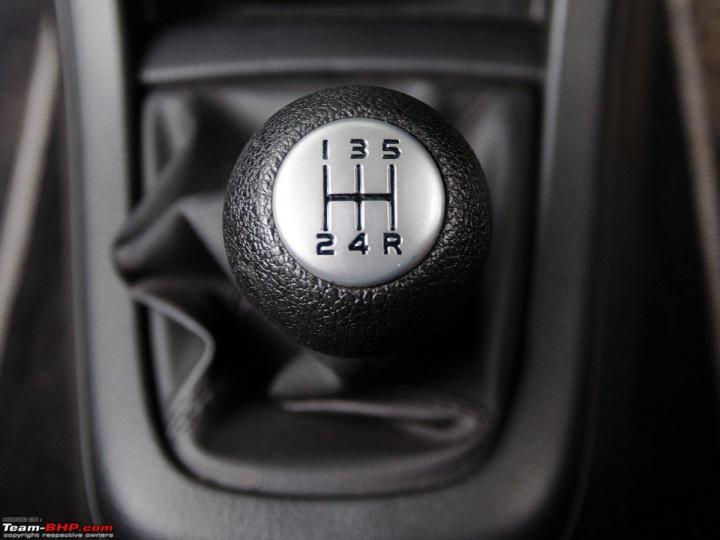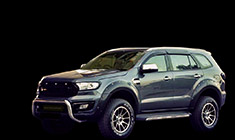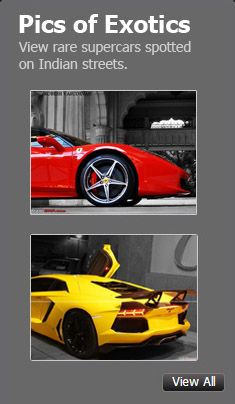News
What is the future of the manual gearbox in India?
I remember reading, in Kerala, not sure about other states, if you have AT, you can still take that car for driving license test and get a license.
BHPian jonesanto recently shared this with other enthusiasts.
I own two cars now, old Innova and 2020 Fortuner AT.
I use Innova for city runs (yes, you heard it right) and Fortuner for highway runs. Few days back while picking up my son back from school (six years old), he asked why this car (Innova) is not AT like our other car? I explained him why and the next question was, when it is time for him to start driving, is it really necessary to learn stick or AT will do?
This got me thinking, I remember reading, in Kerala, not sure about other states, if you have AT, you can still take that car for driving license test and get a license.
So, in 10 years down the line, do you think a 18 or 20 year old would be interested in manual shift and more interestingly, would you actually buy a new manual car 10 years down the line?
Share your thoughts.

Here's what GTO had to say on the matter
Among private car owners, the move to ATs will be drastic. ATs are anyway the dominant transmission in the 20-40 lakh segments, and completely eliminated from the luxury segments above. Even among 10 - 15 lakh car models, we are seeing a preference for ATs when good gearboxes are offered.
But MT will have a place in India for a long time to come. For one, it's a lakh cheaper to buy, more fuel-efficient and cheaper to maintain. Ours is an extremely cost-sensitive economy where budget-conscious owners will endure some hardship to save a buck. Second, while the EVs are coming, petrol cars are going to be around in India. They aren't vaporizing overnight, or even in 10 - 15 years.
Here's what BHPian locusjag had to say on the matter:
Let's stretch the Kosher example a bit from above; you and I, as non Semitic folks, would nonchalantly consume it if we were in the US or Europe today. Whereas, a Semitic person would only ever consume Kosher food. This is why it makes sense for manufacturers and retailer to ensure that most (if not all) fresh juice FMCG CKUs stocked on supermarket shelves in the Western world are Kosher.
Back to the topic of automatic versus manual transmissions
I've heard tell of manual transmissions being prevalent in the US in the past decades. 10% of cars sold in 2000 in the US were stick shift, whereas it's estimated to be a paltry 2% today. In the 1990s, 1980s etc., stick shifts were supposed to have been pretty common.
What I was told by an American gentleman is this - those who drove stick shift in their younger days several decades ago no longer wanted to be bothered by a manual transmission as they got old. They still needed to move around and live their lives despite being 60+ years old. And it is this older population's intransigent preference for automatic transmissions that got the automotive industry to simply up the proportion of automatics. Those who could drive with manual transmissions didn't mind driving an automatic. And this rolling stone has gathered much mass and has rolled over the stick shift in the US automotive market today.
That's the tale that I would expect to play out in other less matured markets such as in India. If you think of car driving population as personas; today's young drivers will be a radically different persona when they age. The existence of stick shifts will depend of this persona in my opinion.
Here's what BHPian shankar.balan had to say on the matter:
Look at the numbers of Manual Transmission vs AT vehicles sold to consumers in India in 2008 and look at the same comparison in 2023.
This should give you as clear an answer as you are likely to get.
Another thing, from what Im told, the new generation prefers experiences to ownership and possession. And I believe they arent particularly enamoured about owning a vehicle, when there is an Uber just a click or three away, which enables them to get where they want to go, and yet play with their mobiles at the same time.
Here's what BHPian GhostGrid had to say on the matter:
With various types of Automatics, EVs, and ADAS on the market, manual shifting will undoubtedly decrease, but many automobile enthusiasts still like or will favor manual shifting, so it may continue to exist in niche markets.
Also, every individual's health situation will play a significant role. I used to believe that I would never switch to automatic, but it appears that my legs and back are giving up after every long ride and begging me to purchase a new automatic.
Here's what BHPian V.Narayan had to say on the matter:
80 years ago almost all cars had the double clutch* system. Today I believe none do. This is the march of change for great safety, convenience and ease. Once ordinary non-enthusiastic drivers such as me get used to automatic transmissions going back to manual is a pain and a deep inconvenience. Other than a few diehard enthusiasts I doubt with the coming of EVs and strong hybrids if manual transmissions will survive except in racing or adventure cars.
*Double clutch was common in non-synchromesh gears of the 1940s and earlier where clutch push 1 was to move to neutral and then clutch push 2 was used for moving to the desired gear. Specialist earth moving vehicles, very heavy trucks & mobile cranes use this today. I doubt any car does.
Read BHPian comments for more insights and information.



















